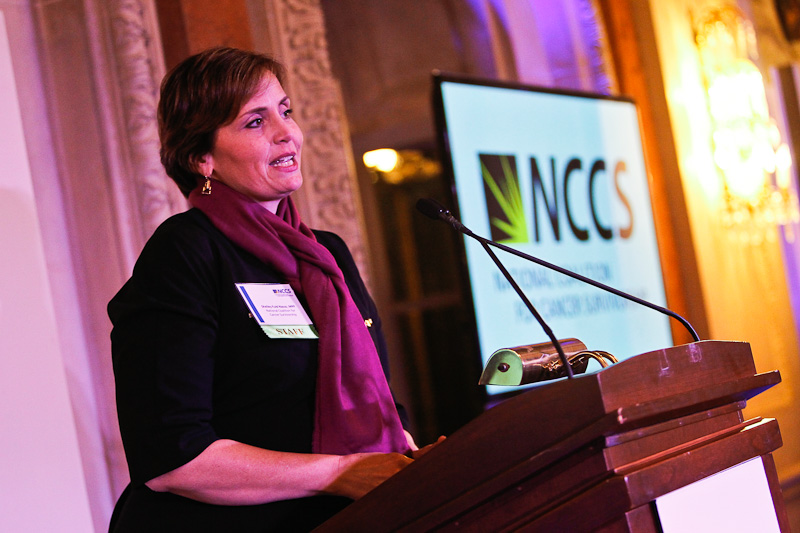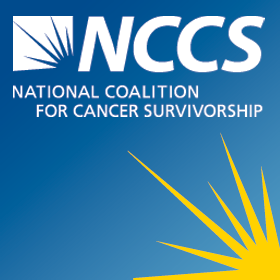Guest Post Series: NCCS CEO Shelley Fuld Nasso Offers Advocate’s Perspective on Oncology Care Model
The Centers for Medicare and Medicaid Services (CMS) recently announced the Oncology Care Model, a new payment model for physician practices administering chemotherapy that aims to provide higher quality, more highly coordinated oncology care at a lower cost to Medicare. This week, we’re presenting several different perspectives on the Oncology Care Model and how it will impact patients, providers, and cancer therapies. Be sure to read the perspectives from Dr. Michael Ybarra, Senior Director, Alliance Development, PhRMA and oncologist Dr. John Cox.
This month marks the 50th anniversary of the Medicare program. There has been significant press coverage of the Medicare program over the last 50 years, and a study published in JAMA yesterday reported strong improvements in care for Medicare beneficiaries in a number of areas.

Post by NCCS CEO Shelley Fuld Nasso, MPP (pictured at 2014 NCCS event)
Given that half of all cancer diagnoses are in individuals age 65 or over, the Medicare program is critical to the delivery of quality cancer care for Americans with cancer. However, the current fee-for-service does not promote patient-centered, well-coordinated care, as Dr. John Cox eloquently described in his recent blog post.
We believe that it is essential to change the way we deliver care to cancer patients, and in particular, to improve the doctor-patient discussion about treatment options to ensure that patients’ needs, values, and preferences are considered in decision-making. In order to change delivery, we must change the way we pay for care.
NCCS has long advocated for a thorough, patient-centered cancer care planning process, at diagnosis and at major transition points in care, including the transition to survivorship. Patients need and deserve a care plan that outlines their treatment and post-treatment care. It’s not about checking a box that a piece of paper was handed to a patient – it’s about truly engaging patients in decision-making about their care; ensuring that they are informed about their treatment options, including both benefits and risks of treatment; and respecting their autonomy to be involved in decisions to the degree they wish to participate.
The Oncology Care Model (OCM) begins to address these disincentives in the system by encouraging practices to transform the way they deliver care to be more patient-centered. Key elements include the requirements for care planning, 24/7 access to physicians, and care coordination and navigation. It is not a perfect model, but it’s an important start. NCCS has been outspoken in providing a patient perspective on this important proposal and has shared comments with the Center for Medicare and Medicaid Innovation (CMMI).
We believe the OCM holds significant promise of boosting patient satisfaction and improving the overall quality of care, and we look forward to continuing to engage with CMMI through the implementation and evaluation of the model, so that we can learn from it and help disseminate the best practices and lessons learned.
As we celebrate 50 years of Medicare, we must not lose sight of the need to improve the way we care for our nation’s seniors with cancer.




